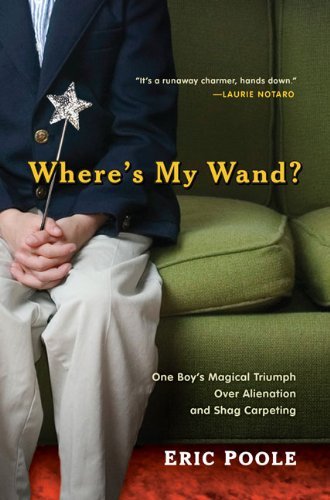What do you think?
Rate this book


263 pages, Hardcover
First published January 1, 2010
I have a feeling that Eric Poole and I would have been good friends had we grown up in the same place and time. I can completely relate to his not belonging but not understanding why (because he really was a sweet guy in a wacky household!). I can relate to his struggle to improve his life by invoking magic and then god as a youth, then wondering why both are inconsistent.
Where's My Wand? is a quick, easy, and enjoyable read. Poole is funny, but I see his humor as that kind of humor developed from pain (i.e. the kind of humor most stand-up comedians have), so you will probably find this book funny in a knowing-smile way if you have also experienced pain like his while growing up or perhaps in a laugh-out-loud way if you didn't.
Anyway, this is a cute book about one boy finding belief in himself when he put belief in other things (magic, god) first for too long, as well as finding understanding and appreciation for why his mother was how she was.